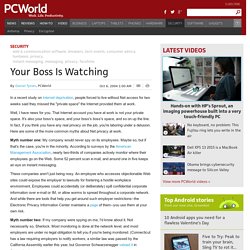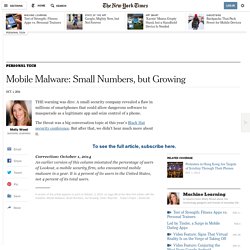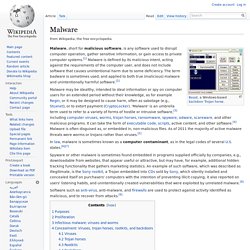

Why Everyone's to Blame for Identity Theft. The other day a reporter asked me who’s to blame for the growing epidemic of identity-related tax fraud.

I almost replied, “the government and the bad guys,” but I caught myself before committing to that inaccuracy. “We’re all to blame,” I said. I believe that breaches, and the identity theft that flows from them, have become the third certainty in life, right behind death and taxes. While it may seem like hyperbole, more than 1 billion consumer records containing some form of personally identifying information (PII) have been exposed to hackers, identity thieves and spies (forget, for the moment, the NSA) over the past 10 years. Spam Nation: The Origins of Cybercrime & Consumer Habits.
I recently had the chance to see Brian Krebs speak at his book reading of Spam Nation.

Krebs is at the forefront of investigative reporting related to the dark dealings of organized cybercrime. His work is more pressing than ever considering these three factors: The never ending string of publicly acknowledged data breachesThe near ubiquity of PII (publicly identifiable information) about consumers that is available onlineThe need to salvage some sense of identity integrity online In Spam Nation, Krebs reveals the origins of spam, which security experts like Kaspersky claim represents upwards of 70% of total email traffic. Your Boss Is Watching. In a recent study on Internet deprivation, people forced to live without Net access for two weeks said they missed the "private space" the Internet provided them at work.

Well, I have news for you. That Internet account you have at work is not your private space. It's also your boss's space, and your boss's boss's space, and so on up the line. In fact, if you think you have any real privacy on the job, you're laboring under a delusion. Mobile Malware: Small Numbers, but Growing. THE warning was dire: A small security company revealed a flaw in millions of smartphones that could allow dangerous software to masquerade as a legitimate app and seize control of a phone.

The threat was a big conversation topic at this year’s Black Hat security conference. But after that, we didn’t hear much more about it. Perhaps that should not be surprising. For some time, computer security companies have been on the lookout for apps meant to do harm to smartphones. But for all the concern, so-called mobile malware has not had much of an impact on regular people. A recent report by the security company McAfee said that there was a 197 percent increase in mobile malware from 2012 to 2013.
Malware. Malware, short for malicious software, is any software used to disrupt computer operation, gather sensitive information, or gain access to private computer systems.[1] Malware is defined by its malicious intent, acting against the requirements of the computer user, and does not include software that causes unintentional harm due to some deficiency.

The term badware is sometimes used, and applied to both true (malicious) malware and unintentionally harmful software.[2] In law, malware is sometimes known as a computer contaminant, as in the legal codes of several U.S. states.[6][7] Spyware or other malware is sometimes found embedded in programs supplied officially by companies, e.g., downloadable from websites, that appear useful or attractive, but may have, for example, additional hidden tracking functionality that gathers marketing statistics.
Purposes[edit] Malware by categories on 16 March 2011. Proliferation[edit] Infectious malware: viruses and worms[edit] Viruses[edit] Rootkits[edit] Bank Hackers Steal Millions via Malware. Photo PALO ALTO, Calif. — In late 2013, an A.T.M. in Kiev started dispensing cash at seemingly random times of day.

No one had put in a card or touched a button. Cameras showed that the piles of money had been swept up by customers who appeared lucky to be there at the right moment. But when a Russian cybersecurity firm, Kaspersky Lab, was called to Ukraine to investigate, it discovered that the errant machine was the least of the bank’s problems. The bank’s internal computers, used by employees who process daily transfers and conduct bookkeeping, had been penetrated by malware that allowed cybercriminals to record their every move. Then the group impersonated bank officers, not only turning on various cash machines, but also transferring millions of dollars from banks in , , Switzerland, the United States and the Netherlands into dummy accounts set up in other countries. Continue reading the main story Transferring money into hackers’ fraudulent bank accounts fraudulent accounts overseas Mr.
The Five Biggest Threats to Your Kids’ Privacy, and What You Can Do About Them. Remember back in school, when your teachers warned that everything you did would go on your permanent record?

It turns out your teachers have become right. That permanent record is the Internet. It’s hard to be a fully functioning adult in 2014 and not leave behind a digital trail. Now imagine how hard it is for your kids, who have never known a world where the net did not exist.